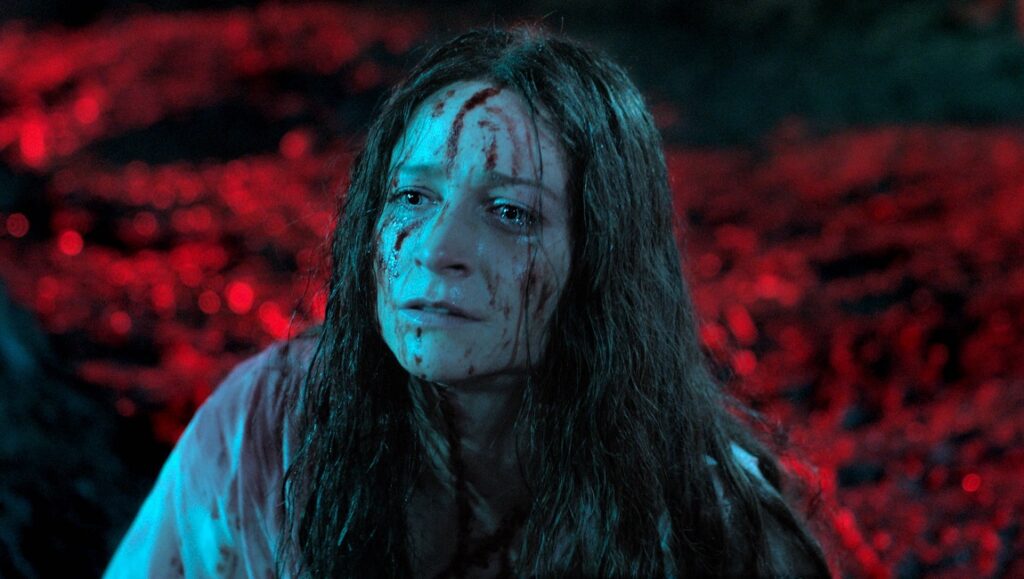Rarely has horror felt as inert as it does in the tedious Censor.
The opening credits to the new horror film Censor feature a montage of gory and violent scenes courtesy of what the British once referred to as “video nasties,” low-budget horror and exploitation films that trafficked in the offensive and obscene. Those expecting anything quite so nasty, though, should look elsewhere for their kicks, as Censor is in fact quite stingy when delivering the goopy goods, regardless of an intriguing premise that practically begs for such fulfillment. Enid (Niamh Algar), a film censor in ’80s United Kingdom, has never gotten over the disappearance of her younger sister, who went missing while they were playing in the woods as children. When on assignment for a new movie by famed video nasty director Frederick North, Enid can’t help but notice the similarities between the events on screen and those that transpired on the day of her sister’s vanishing. Thus begins Enid’s spiral into madness as she searches for the truth, plagued by guilt and self-doubt.
This also signals the first of Censor’s myriad missteps, as director and co-writer Prano Bailey-Bond accelerates that descent to a degree that makes the proceedings borderline absurd: what should have been a slow burn is instead a four-alarm fire, sucking the film of all oxygen and life. Formally, Bailey-Bond displays technical chops, but the movie as a whole favors a cold austerity that at this point has become rote in the indie horror scene. Manipulation of aspect ratios is also a tired cliché that adds nothing thematically to the proceedings, and instead feels like a director simply showing off. This is especially true of the film’s ending, which hints at something meaningful in regards to the blurring of fantasy and reality and the effects of film violence on the viewer, but instead comes across as an obnoxious attempt at cleverness. Censor is indeed nasty, but only for the tedium it inspires within audience members. Rarely has horror felt this inert.
Originally published as part of Sundance Film Festival 2021 — Dispatch 4.


Comments are closed.